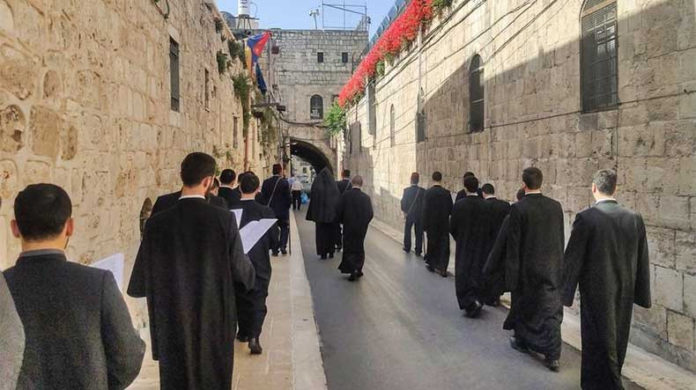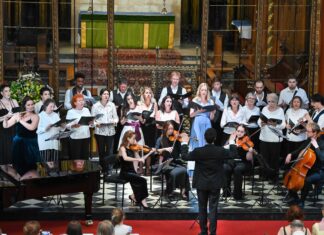By Nadav Tamir
Jerusalem’s special status as one of the world’s cultural centers and an attractive tourist destination stems from it being the cradle of three monotheistic religions. It is center to which a significant number of the world’s citizens feel a religious, cultural, or historical connection. The strength and uniqueness of Jerusalem, as well as its economic potential for residents, depends on the ability of the capital’s leaders and the state to maintain its interreligious and cultural identity.
The Armenian community is one of Jerusalem’s oldest, with the first Armenians arriving as early as the 4th century CE and the Armenian Patriarchate being active in the city since the 7th century. Jerusalem is the most important center of the Armenian community outside its homeland; and the Armenians were the first to convert to Christianity as a nation in 301 AD. But this glorious history does not help the small community in dealing with the ambitions of the far-Right to take over the Armenian Quarter.
The Armenians in Jerusalem are one of the smallest and most vulnerable communities; they are neither Palestinian nor Israeli, and have no interest in being dragged into the ongoing conflict. They do not have the support of strong churches or states such as the Catholics, Greek Orthodox, Russian Provo Slavs or Protestants. Being in this vulnerable position, they are reluctantly at the forefront of an ongoing struggle to prevent settlers and real estate moguls from harming the multiculturalism and multi-religiosity of Jerusalem — the city’s most important resource and what makes it a lodestone to the entire world.
Though a small community of only 2,000 people, their real estate is in high demand and is causing them to experience distress and harassment. This is the reality of Jerusalem’s Armenian Quarter, situated in a highly desirable location on the road leading from the Jaffa Gate to the Jewish Quarter and the Western Wall.
A major distress for Armenian Quarter residents is that it is the last undeveloped space of the Old City, a plot of 11.5 dunam (3 acres) that has been the focus of takeover efforts by Jewish settler organizations. Recently, a company owned by an Israeli-Australian businessman has managed to lease the plot and several adjacent buildings from the Armenian Patriarchate into the next century, for the laughable sum of only $2 million. The entrepreneurs have denied any connection to right-wing NGOs, but were seen meeting with Mati Dan, head of the 40-year-old Ateret Cohanim, the self-defined “leading urban land reclamation organization in Jerusalem,” the leader of settlement efforts in the heart of the east Jerusalem neighborhoods.








